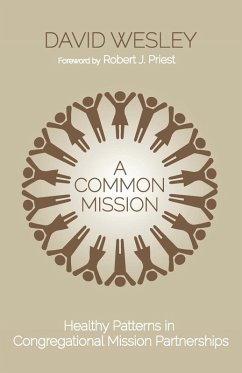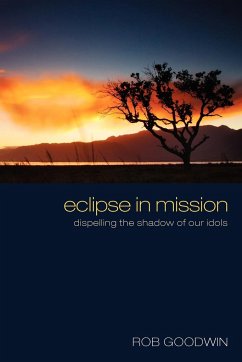The term Ubuntu articulates an African understanding of our need to connect to one another in order to be complete. Likewise, A Common Mission offers a description of churches that connect with one another through the growing phenomenon of mission partnerships. The word ""common"" indicates something shared among equals. The word ""common"" also suggests something present in all parts of an organism, production, or narrative, such as a common thread. These two aspects of commonality provide an important orientation for contemporary mission. Since 2008, congregational partnerships emerged so quickly and spontaneously that very few researchers originally noticed this groundswell. Partnerships remain present in over 80 percent of United States mega-churches and are prominent in a large number of smaller US churches. This should not be surprising. Mission exists as an expression of the church's identity, an evangelistic expression that crosses frontiers and goes to the ends of the earth. In our globalized context, however, mission also crosses neighborhood ""frontiers"" to the immigrants within our own communities. Mission expresses its Christian witness as congregations love those separated from the church by ethnicity, language, sexual orientation, religion, or fear. A Common Mission provides a framework of healthy patterns for churches to live into this mission identity. ""Quality literature and research on this topic is still rather sparse. Most of what has been written to date has been of a more popular nature. This volume promises to offer a substantive contribution to the literature that is at once rooted in sound empirical research, but is presented in a readable and useful manner, helpful to local churches and practitioners. David is a fine scholar, has wide experience, and evidences writing skills. I encourage publication of this work and will gladly recommend it."" --Craig Ott, Professor of Mission and Intercultural Studies, Trinity Evangelical Divinity School, Deerfield, IL ""David Wesley's book examines one of the newest trends in world mission, where US megachurches form a central base for global partnerships on behalf of witness and service. I am not aware of any other publication that comes close to addressing this topic based on careful research."" --Robert Priest, Professor of Mission and Anthropology, Trinity Evangelical Divinity School, Deerfield, IL ""The day of local church engagement in mission partnerships has dawned. Wesley's hands-on research and keen insights into this new paradigm is both greatly needed and timely. Pastors, missiologists, and denominational leaders alike will benefit from this careful study of the future that is now for world mission."" --David A. Busic, General Superintendent, Church of the Nazarene, Oklahoma City, OK ""Congregational partnerships may be the largest paradigm shift in how to facilitate mission that we have encountered in a century. Wesley's work is very important to help congregations successfully develop healthy partnerships and avoid the pitfalls of dependency and other unhealthily relationships. The Church of the Nazarene needs this research to inform and guide us to healthy relationships that accomplish the mission of God."" --Verne Ward III, Nazarene Global Mission Director, Lenexa, KS David Wesley is Professor of Intercultural Studies at Nazarene Theological Seminary in Kansas City, MO.
Hinweis: Dieser Artikel kann nur an eine deutsche Lieferadresse ausgeliefert werden.
Hinweis: Dieser Artikel kann nur an eine deutsche Lieferadresse ausgeliefert werden.









